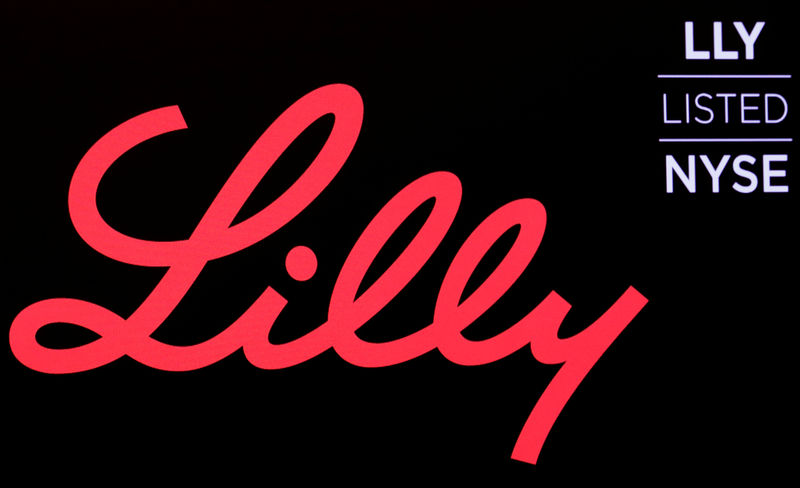Investing
Obesity drug data could boost companies’ case for US coverage-analysts

© Reuters. FILE PHOTO: An overweight woman sits on a chair in Times Square in New York, May 8, 2012. America’s obesity epidemic is so deeply rooted that it will take dramatic and systemic measures – from overhauling farm policies and zoning laws to, possibly, introd
2/3
By Patrick Wingrove
(Reuters) – New data on the heart benefit of an obesity drug from Novo Nordisk (NYSE:) increases the chances of a pay-off for it and rival Eli Lilly (NYSE:), which have spent a record amount on U.S. lobbying to win government backing for the drugs, analysts and experts said.
U.S. law classifies weight-loss treatments as lifestyle drugs and bars Medicare from paying for them. Novo and Eli Lilly have spent nearly $1.3 million this year lobbying the U.S. Congress on obesity and specifically on a bill reintroduced in July that would allow the Medicare health plan to reimburse these medicines.
Novo’s treatment was shown to decrease heart attacks and strokes by 20% and the drugmaker has said it will seek regulatory approval for Wegovy as a cardiovascular treatment, which analysts and health policy experts said could also be a route to winning reimbursement from Medicare.
Vanderbilt University Professor Stacie Dusetzina said she thought the trial results might provide an avenue to coverage for people similar to those in the study in terms of having a prior heart attack or stroke.
“The drug ingredient semaglutide is already covered when used in lower doses for treatment of diabetes, so if the drug receives additional indications that are typically covered by Medicare, I’d expect those patients to have access to the drug,” she said.
Wegovy and Eli Lilly’s Mounjaro, a diabetes treatment similar to Wegovy that is expected to be approved for obesity this year, are two of the fastest growing drugs in the country, with a price tag of more than $1,000 per month. Wegovy prescriptions were up 300% at their peak, according to data from Barclays (LON:), before supply issues began to hamper sales.
Novo Nordisk and Eli Lilly did not respond to requests for comment.
A COMPELLING CASE
Analysts said the data made a compelling case for long-term health benefits of the drug.
“This 20% risk reduction in cardiovascular events, including death, will start to make a huge difference and a real push to get the law changed,” said BMO analyst Evan Seigerman.
Analysts were divided on whether Medicare could potentially cover Wegovy as a cardiovascular treatment without a new law passing. Three doctors specializing in obesity treatment, including a cardiologist, were not sure whether such an indication would allow for Medicare coverage.
Dr. Eugene Yang, a cardiologist at University of Washington Medicine, said that although the data has yet to be peer-reviewed and published, it is promising because he and his colleagues have not had a strategy to deal with the growing rates of obesity and corresponding cardiovascular problems before.
“The devil will be in the details, but having a therapeutic option that reduces weight and has a potential cardiovascular benefit is exciting,” he said.
Morningstar analyst Damien Conover noted that the study’s positive outcome would likely push payers – a group that includes insurance companies, employers and Medicare – to increase coverage over the next year.
Companies that provide healthcare insurance have begun pulling back on coverage of weight loss drugs because of the high cost of the medicines.
Benefits experts warned that passing a law that would increase the costs for Medicare, which covers about 66 million people mostly aged 65 and older, would be difficult.
NOVO SPENDING ON PACE TO PASS 2022’s
In the lead-up to the result, lobbying firms employed by the Danish drugmaker disclosed a collective spend of $630,000 in the first half of this year to urge lawmakers to allow Medicare to cover weight-loss drugs, including in the reintroduced law from Democratic Senator Tom Carper called the Treat and Reduce Obesity Act (TROA).
That is almost two-thirds of Novo’s reported lobbying expenditure for the whole of 2022, according to the U.S. Senate’s lobbying disclosure database.
They reported spending $350,000 on lobbying the issue for the manufacturer last quarter, at least $90,000 more than Novo Nordisk’s firms have disclosed collectively paying in a quarter prior to 2023.
Eli Lilly’s firms also recorded having paid $640,000 collectively in the first half of this year on lobbying for Medicare weight-loss coverage, the same amount they disclosed for the issue for the whole of 2022.
The two drugmakers collectively spent more than $7.5 million on these lobbying efforts over the last decade.
Vanderbilt’s Dusetzina said the increase in spend might not be enough to get Democrat and Republican lawmakers to band together on this issue.
“Changing Medicare policy and passing legislation, even if most people agree with the policy goals, is very challenging in the current political environment,” she said.
Read the full article here

-

 Side Hustles4 days ago
Side Hustles4 days agoWhy the Best CEOs Think Like Anthropologists
-

 Make Money5 days ago
Make Money5 days agoEarn More in 2025: Top 10 High-Yield Savings Accounts Revealed
-

 Side Hustles5 days ago
Side Hustles5 days agoWhat to Do If TikTok is Banned — How to Protect Your Brand
-

 Passive Income5 days ago
Passive Income5 days agoHow Pets Can Promote Better Health and Well-Being in the Workplace
-

 Side Hustles5 days ago
Side Hustles5 days ago10 Roles That Are Surprisingly Well-Suited for Outsourcing
-

 Make Money6 days ago
Make Money6 days agoBuild Your Future: 5 Simple Steps to Financial Stability
-

 Side Hustles6 days ago
Side Hustles6 days agoMeta Is Laying Off 5% of Its Workforce: Read the Memo
-

 Investing2 days ago
Investing2 days agoTikTok faces US ban deadline as users brace for fallout By Reuters


















